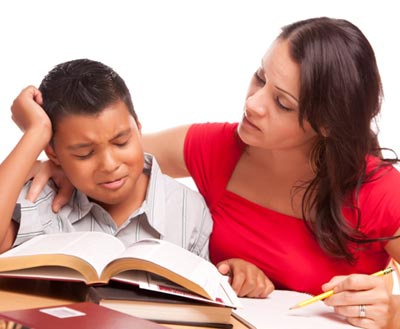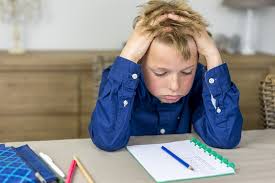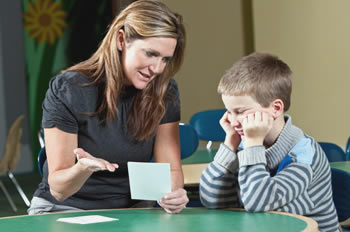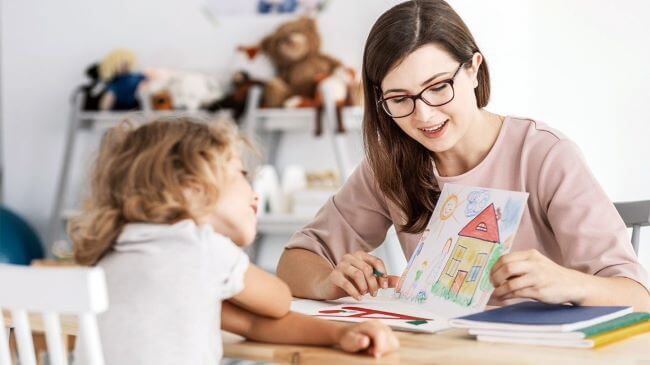10 Things That Parents Can Do for Kids With Learning Disabilities
How to Help Kids With Learning Disabilities
ALL TOPICS
- YouTube Parental Control
-
- How to see your YouTube history?
- What is Metaverse? Parent Guide
- Put parental controls on YouTube
- Delete TikTok Account without Phone Number
- Ways to block YouTube channels
- Ways to Get Somone's IP Address and Hide IP Address
- A complete guide on YouTube parental control
- What is Fanfiction? Parents Guide
- Kids safe YouTube alternative
- Top 5 TikTok Alternatives
- Methods to restrict YouTube adult content
- Social Media App Parental Controls
- Parental Control Tips
Jan 10, 2025 Filed to: Health & Education Proven solutions
As difficult as it is for kids with learning disabilities to keep up with their classmates at school, it’s also tough for the parents. It’s easy to lose patience when you get frequent calls from teachers and watch your kid struggle to maintain passing grades.
While there may not be a complete cure for learning disabilities, with good parenting, you can help build their self-confidence and acquire the skills that will help them succeed, not just in school but in later years of their life.
Kids with learning disabilities need plenty of support, love, and attention from their families to thrive. If you’re looking for ways to help your child with LD, you’re on the right page. This post will list down 10 useful things you can do to boost your child’s development.

What Is A Learning Disability (LD)?
Learning disabilities include a range of learning and thinking difficulties. These difficulties in comprehending information result from a neurological disorder but have nothing to do with a person's smartness. Kids with learning disabilities can be as smart as their classmates, sometimes even more.

However, they can have trouble with:
- Reading
- Writing
- Understanding directions
- Reasoning
- Solving problems
- Organizing information
Though the condition cannot be cured, good parenting and professional support can help the child succeed in life. There's no reason why they can't establish a good career. After all, Albert Einstein couldn't read until the age of 9. Charles Darwin and Thomas Edison also struggled in school. These and many other names remembered in history through their work achieved a lot more than most people without learning disabilities. Your kids can achieve the same, just with a little push in the right direction.

There are several different types of learning disabilities, and they affect kids differently. Common learning disabilities include:
Dyslexia
Dyslexia is a disability relating to language. It may make reading, writing, and expressing verbally difficult for the person. Their reading comprehension skills and grammar can also suffer.
Dyspraxia
Dyspraxia is a disability of movement and coordination. It impacts a person's motor skills, like walking, holding things, or tying shoelaces. They may also find it difficult to write or type.
Dyscalculia
Dyscalculia is a mathematical disability that can affect people differently and result in a range of different symptoms. During the early years, a child may struggle to recognize numbers and count. As they grow older, they may have trouble solving sums and grasping concepts.
Dysgraphia
This is a writing disability. Dysgraphia can take several forms in different individuals, but common symptoms include:
- Bad handwriting
- Difficulty forming letters
- Incorrect spellings
- Struggle writing in given spaces
What Can Cause Learning Disabilities Among Kids?
Learning disabilities are a common problem. According to NIH, 15% of the US population has some type of learning disability. There can be many reasons why a kid might be experiencing difficulties in learning. Often the exact cause of learning disability in a child is not known. However, here's a list of some common reasons for learning disabilities:
- Genetics
Often, it’s an inherited condition. If learning disabilities run in the family, the chances of it being transferred to the kid increase. Research shows that if a parent had had a learning disability, the kid is likely to develop the same condition.
- Prenatal And Neonatal Complications
Complications in the fetus and newborns can also result in learning disabilities. If the mother consumes alcohol or drugs or any other reason for poor development inside the uterus, it can result in the kid developing learning disorders as they grow. Additionally, complications during birth can also inhibit oxygen supply to the brain, increasing the risks of LD.

- Physical Factors
Severe medical conditions during infancy, such as high fever, head injury, or infections that affected the nervous system, can also develop learning disorders in kids. If the kid was in an accident, even years back, or was a victim of child abuse, they can experience difficulties in development.
- Psychological Factors
Abuse at an early age, neglect, or other psychological factors can also impact brain development.
- Environmental Factors
Sometimes, contact with dangerous material in the environment, such as exposure to radiation or high toxins levels, can be the cause.
10 Things Parents Can Do To Help Kids With Learning Disabilities
Whatever the cause may be, one thing is certain: kids with learning disabilities can perform much better with a little extra attention from their family.
Wondering how you can help your child keep pace with their peers?
Here are 10 practical tips for parents with kids experiencing learning disorders:
1. Educate Yourself
Once your child has been diagnosed with a learning disability, educate yourself on their specific condition. Keep yourself updated with the latest educational techniques, therapies, and programs to help the child cope with the disability and even overpower it.

2. Be Patient - Take Things Slow
Without a doubt, parenting a child with LD can be overwhelming and discouraging. Don't let loads of schoolwork, endless tests, and exams let you down. Your child may not score the best marks or complete all the schoolwork flawlessly, but what's really important at this stage is their emotional and mental development. Support them as they learn new things at their own pace.
3. Appreciate Strengths
From an early age, focus on strengths rather than weaknesses. Every child has their own weaknesses and strengths. It's imperative to their mental development to show encouragement. Look for their strong points and pay compliments on those. They might already be feeling bad about themselves if they're not performing well at school. Making them feel valued and smart can go a long way in building a strong personality.
4. Value The Effort
Praise the child for their effort, irrespective of the outcome. For example, whether he got the answer right or wrong, you could say something like, “I can see you put quite some thinking into it.” It will develop more self-confidence than appreciating the result.

5. Breaks
Kids with learning disabilities shouldn't be overloaded with work at once. If the school work is more than what they can manage easily, allow multiple breaks. It will help your child relax before resuming work with restored energy.
Now several education institutions are using VR (virtual reality) learning to improve their teaching methods. VR learning is a great way to boost students' interest in boring subjects, letting them study in an relaxing atmosphere. Here is a detailed guide to VR learning you can't miss!
6. Let Them Do Things On Their Own
Remember, your main focus should be to help them learn how to help themselves and not helping them. If you want them to grow up to be independent, start training them from an early age. Let them try out things on their own. If they want to try their school work on their own, let them.
7. Put A Positive Influence
Your kid will always follow in your footsteps. If you take on tasks with a positive attitude and hard work, the child will likely do the same. The learning process can become much easier, enjoyable, and productive with a little optimism.

8. Be Your Child’s Advocate
Kids with learning disabilities need their parents to be their advocate. Whether they're starting a new school, has a new teacher, or is joining a sports team, you'll have to speak up for them every time they need special help. Work on your communication, making sure you can make your point in a friendly but clear and firm manner.
9. Mistakes Are Ok
Make them understand that mistakes are ok, and show it through examples. If you make a mistake while writing something, say something like, “Oops, that isn’t the right spelling! I’ll just cross it out and correct it.”
10. Get Professional Support
Though LD isn’t curable, kids with learning disabilities can be successful academically and professionally if provided with the right support from an early age. Speech or language therapies, physical therapy, and similar interventions can help, depending on what skills need improvement. Sometimes, if the child is frustrated or depressed with their condition, professional counseling can also help.

FamiSafe - An App To Help Kids Form A Good Schedule
All kids need a healthy routine to develop physically and mentally. FamiSafe can help you build one for your kids.
Among the bundles of parental control features FamiSafe offers, here are a few highlights:
- Screen Time Schedule
Parents can not just monitor their kid's screen time but also schedule it remotely around specific locations, like school time and bedtime. You can also temporarily block devices or reward screen time if the kid completes an important task.
- Browsing History
You can view your kid's browsing history and block websites that you deem unsafe for their development. You can also filter websites by category, so the kid doesn't view something that's not appropriate for their age.
- App Blocker
Using FamiSafe, you can block apps that are distracting your kids from their tasks to help them focus on the things they should do
- Location Tracking & Geo-fencing
- App Blocker
- Web Filtering
- Screen Time Control
- Smart Parental Control Setting
So you’ve learned some handy tips on how to raise kids with learning disabilities.
What’s the bottom line?
Take things slow and optimistically; appreciate your child, and support them through their efforts without focusing on the outcomes.


Ankhi Bhattacharya
contributor Editor